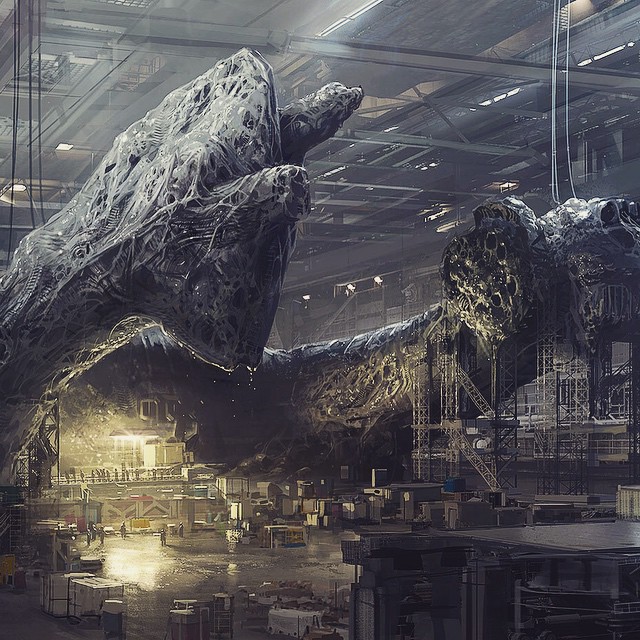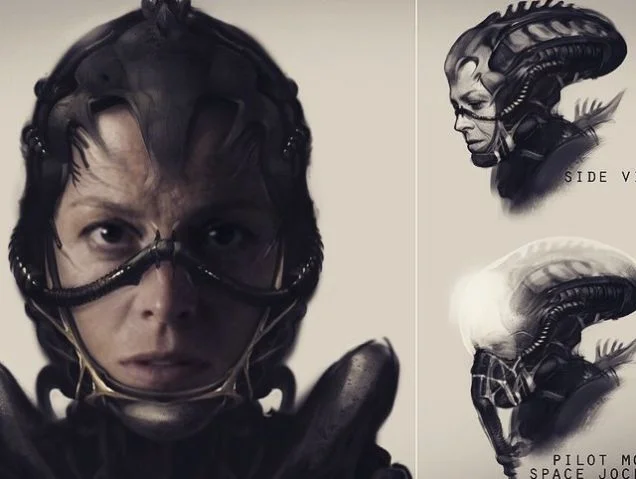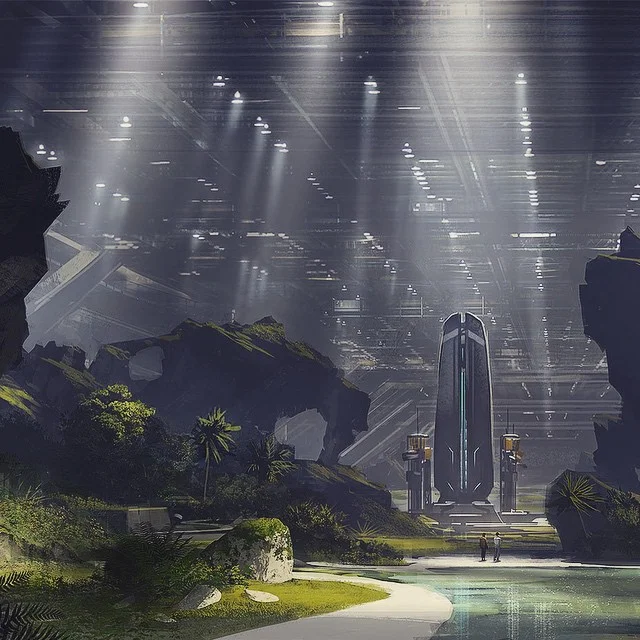Neill Blomkamp—director of District 9, Elysium (which I reviewed here), and the forthcoming Chappie—is now set to direct a new film in the Alien universe. This is, for me personally, quite exciting and simultaneously a little disappointing.
What I’m conflicted about is the possible end of Blomkamp’s run at original science fictional cinema. Plucked from independent film-making by the institution formerly known as Peter Jackson, Blomkamp turned against established franchises when his Halo project collapsed in pre-production hell. Jackson’s confidence in his work allowed for the development of District 9, a politically-charged science fictional film that evokes the imagery of apartheid alongside an alien encounter set in South Africa.
Although criticized for its portrayal of Nigerian migrants in South Africa, the film’s general structure is aimed at combating forms of xeno-racism—that is, racism which may or may not be color-coded that is fixated on the oppression of migrant populations. Most on the left dismissed the film entirely as a product of a bigoted white South African, but mainstream audiences saw the film as a rather powerful indictment of contemporary racism in the capitalist world order. It was even nominated in 2009 for an Academy Award for Best Picture, Adapted Screenplay, Editing, and Visual Effects. It is rare for an original sf property to garner such critical praise.
Coming off of the success of District 9, Blomkamp directed Elysium, which I have described as a “working class fantasy.” In my review, I summed up my view of why the film was an important step forward in mainstream sf: “Recalling the best Science Fiction of the 1970’s with its sharp political edge and dystopic flavor, Blomkamp’s Elysium manages to be a thoughtful fantasy reflecting the current state of the world and a thoroughly enjoyable sci-fi action film all at once. Delving into issues spanning health care, immigration, ruling class factional struggles and more, Elysium paints a picture of the future by exaggerating the features of our own world. In fact, when asked by Entertainment Weekly if the film represents what Blomkamp thinks Earth will be like in 140 years, he responded, ‘No, no, no. This isn't science fiction. This is today. This is now.’”
The use of social critique and critical commentary on current events recalls an older sensibility in sf. Indeed, Blomkamp’s works seem to be the cinematic version of New Wave science fiction literature, deploying science fictional novums in a manner that seamlessly weaves technological and social consequences together. Many other big budget sf films carry with them an inevitable social commentary born of their contextual origins, but few place this commentary at the center of the narrative. The censorship of the profit motive precludes this—but in this case, the sway of Peter Jackson has permitted Blomkamp’s entry onto the big screen (apparently his clout is good for something more than absurdly long remakes and absurdly drawn out trilogies).
Chappie looks to be a product of the same kind of sf work, but I cannot speak on the subject as it has yet to be released. All of this makes Blomkamp’s entry into the Alien franchise exciting. His concept art was floated via social media to test the waters of support, and apparently Fox was excited for him to give new life to an old money-maker. From Alien 3, to Resurrection, the “versus Predator” movies, and the disappointing Prometheus (though its sequel is still in production), the golden ticket has turned to rust for Fox.
Every attempt to revive the franchise has gone sour in both the critical and box office arena. Ridley Scott’s Prometheus seemed a promising return to the origins of the franchise, but confused writing ultimately produced an incoherent narrative with completely unlikable characters. Nonetheless, Fox is producing a sequel—without Lost writer David Lindelof this time—and Blomkamp’s film will follow it.
Blomkamp has promised a sequel to Aliens that disregards the material of Alien 3 and Alien: Resurrection (and, naturally, the Aliens vs. Predator “films”). He has said that he wants the film to be “literally the genetic sibling of Aliens.” Accordingly, the death of Ripley (and the rest of the survivors of Aliens) will disappear from the narrative. Alien 3 was in many ways a powerful concept with poor execution. Its gothic atmosphere and nightmarish quality allowed for a return to the bleakness of Ridley Scott’s original in sharp contrast to James Cameron’s military sf adventure story. Nonetheless, the film’s production was a disaster involving endless conflicts, poor special effects work, and numerous rewrites/reshoots. In order to move the narrative forward, Blomkamp is wisely jettisoning its baggage.
Sigourney Weaver is set to return as the indomitable Ellen Ripley. Weaver’s portrayal of Ripley—a female hero during an era of hyper-masculinity in film—is the heart of the Alien world, and the only redeeming quality of both Alien 3 and the bizarre Alien: Resurrection. Her return presumably takes place alongside the characters of Hicks, Newt, and the android Bishop. Blomkamp has Ripley sporting the equipment of “the Engineers,” the alien race supposedly responsible for the creation of the creatures. These beings were only hinted at in the original film, though they are the main subject matter of Prometheus. In terms of narrative construction within the Alien universe, this is the only point of potential crisis. Hopefully the sequel to Prometheus will improve on the narrative, but it is difficult to imagine how that film can be incorporated into anything resembling a coherent storyline.
What has me conflicted about this whole project—other than the obliteration of Alien 3, which, in spite of its flaws, is a powerful film in my view—is Blomkamp’s shift to an established franchise. The recent record of big budget, original sf has not been good. Aside from Blomkamp’s work, del Toro’s Pacific Rim, and the recent Jupiter Ascending, almost all big budget sf is centered around established comic book characters and book series (though I do not think this is necessarily all bad, particularly with The Hunger Games series). The Hollywood culture industry is not inclined to take risks on projects that cost tens and hundreds of millions of dollars, and so safe bets and endless appeals to nostalgia are the rule. Blomkamp’s work has long been the exception…if his Alien project pans out, what is next?
Hopefully Neill Blomkamp will be able to balance independent work with established franchises. An object lesson is the current status of Gareth Edwards: Edwards directed and put together a powerful independent film called Monsters complete with sharp social commentary, but was then tapped to revitalize Godzilla for Legendary Pictures and subsequently ran into a wall of Hollywood censorship (particularly with its Pentagon contracts), and now is set to direct a Star Wars film. After that, Edwards will direct the sequel to his 2014 Godzilla, which will eventually become a full-fledged trilogy. In other words, it is quite easy for an independently-minded director to find themselves completely immersed in the work of others. Jos Wheedon’s work with the Marvel Cinematic Universe has been wonderful, but it is a shame that he is known for something like The Avengers rather than Firefly. Let’s hope that this does not spell the end of Blomkamp’s independent sf film-making.
UPDATE: Blomkamp has confused things and muddied the waters, saying, “So I want to make a film that’s connected to Alien and Aliens. That’s my goal. I’m not trying to undo Alien 3 or Alien: Resurrection, I just want it to be connected to Alien and Aliens.”









